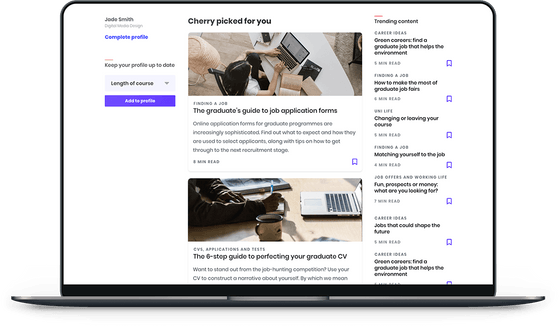Employment law: area of practice (barristers)
Last updated:25 Jan 2023, 13:38
Barristers act for employees or employers on issues, explains Caroline Musgrave from Cloisters.

It’s part of someone’s life story and that does put the pressure on.
Employment law covers the legal rights of employers and employees within the workplace from small local businesses to large corporate firms.
Typical clients are employees facing discrimination or dismissal, or employers that are seeking advice about how to manage employment relations with individual employees or groups of staff who may be affected by their business decisions.
Typical cases and issues in employment law
Cases could involve a one-hour legal argument to a multi-day full liability and remedy trial or anything in between. Barristers advise about the legality of employment relations decisions, review witness statements, advise clients on strategy and represent parties at trial.
Matters are normally brought before an employment tribunal, employment appeal tribunal, the High Court for contractual disputes or the Court of Appeal and Supreme Court for points of law. As an employment barrister you may spend around 60 per cent of your time in court, although this can vary between those who advise employers and those who thrive on advocacy.
Generally there are few all-nighters. We advise people on how to treat their employees properly – if employment lawyers can’t get the work/life balance right, who can?! However, it can be harder to maintain your hours around a trial and it is up to you to put the effort in to keep a good balance. Those who have caring responsibilities manage to strike a balance.
The more senior you are in your career, the more advisory the work tends to be. An employment silk might be advising a client on a transfer or business takeover, whereas juniors may be handling more day-to-day litigation.
The key things to know about the employment Bar
One of the best aspects of this area is being involved in people’s employment interactions. It’s often considered to be the most important relationship for someone after their family and you are stepping into a key area of their lives. It’s also a great opportunity to be involved in litigation – you’re not stuck behind a desk and you get a chance to use your advocacy skills.
However, being involved in people’s lives can also be one of the negative aspects of this area. It can get emotional sometimes and that may deter some barristers from claimant work. It is stressful knowing that you’re involved in decisions that are so important to people; it’s part of someone’s life story and that does put the pressure on.
Employment cases, particularly discrimination, tend to attract a lot of media attention. Chelsea Football Club doctor Eva Carneiro’s discrimination case is one example of being put under the spotlight.
A case for law students to watch is FirstGroup plc v. Paulley about the competing needs of parents with a pram and wheelchair users for the space on the bus. It is worth noting that employment barristers will frequently work outside of employment on discrimination and equality law cases, in the field of goods and services for example (such as the Paulley case).
Is employment law recession-proof?
Employment litigation tends to go up in a recession, as there are more redundancies and takeovers. On the flip side, fees have recently been introduced, which has seen a drop in people willing to bring claims. The employment tribunal fees that were introduced in July 2013 mean that a lot of claimants in low-paid jobs have been deterred from bringing claims, and particularly low-value claims. Generally the Bar has ridden the storm, but barristers at sets not so well known for employment work have suffered.
学生在就业法做什么?
Pupils at our chambers tend to follow regular working hours (8.00 am to 6.00 pm) and are encouraged to go home at the end of the day. They do not generally work through the weekend. Pupillage can feel like a yearlong interview; you don’t get through that year by working through the night.
In the first six, pupils will likely be drafting, researching, opinion writing and attending conferences and court with their supervisors while learning from barristers in each of chambers’ different areas of practice. In the second six they’re on their feet in court with their own caseload. They still have a supervisor throughout this time and the cases tend to be the more straightforward ones.
In terms of early responsibility, employment law can offer a lot to pupils and junior tenants. One of the things about being at a set that does high-profile discrimination cases is that they often bring juniors in. I was in the Court of Appeal a couple of weeks ago as junior to a colleague and my opponent’s junior was their pupil. If that case is reported then that pupil will have their name on it. We also make a point of including pupils in our marketing events with solicitors.
Types of law practised by employment barristers
- Employment.
- Contract.
CAROLINE MUSGRAVE is an employment barrister at CLOISTERS. She graduated from the University of Cambridge with a degree in social and political science, spent six years working in international development and then was called to the Bar in 2008.


